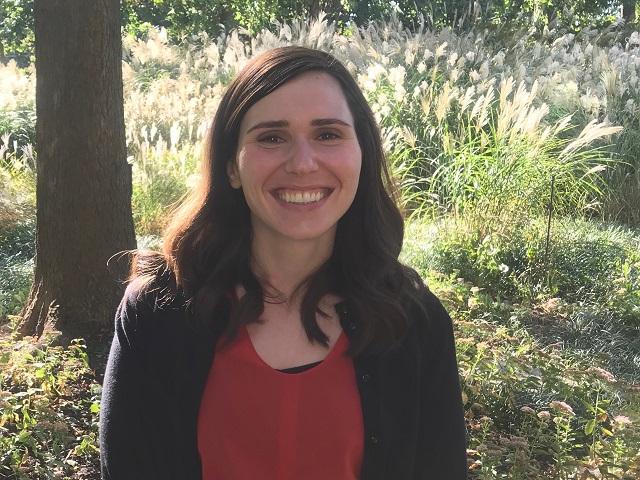Julie Bodnar is a policy adviser in the Office of Domestic Social Development at the U.S. Conference of Catholic Bishops (USCCB). She is the latest faith-motivated healthcare advocate to join us for a Five-Question Interview:
1. What do you consider the most important healthcare work that you and USCCB do?
The USCCB reminds lawmakers and the public that healthcare is a universal right. The consistency of the Bishops in proclaiming this teaching helps reframe the conversation. The USCCB advocates on behalf of persons living on the margins of our healthcare system, those that are too often left out of the debate and left to fall through the cracks. Applying the principles of Catholic Social Teaching to this concrete policy debate helps give form to our values and shares them with a wider audience.
2. What motivates you and USCCB to advocate in the healthcare arena?
Healthcare has real effects on people’s lives. Medical bills are the leading cause of bankruptcy in this country. People forego needed healthcare because they can’t take on the debt, a decision that can be the difference between life and death. When people do access unaffordable care, the consequences can still be dire – people lose homes, undermine their financial security, and sacrifice other necessities to pay their bills. Improving our healthcare system will go a long way towards protecting life and caring for the poor and vulnerable.

3. What are the biggest challenges you face?
For reasons I cannot understand, the issue of healthcare is deeply partisan. The USCCB has a deep commitment to staying true to all of our Catholic beliefs, but each political party seems to have a hold on different beliefs and very few politicians are willing to cross the aisle. It’s tempting to become cynical about politicians’ motives and to lose hope that change that truly honors life and dignity for all people at all stages of life is possible. But that’s our call – to stay committed to this work despite the partisanship and to call people out of the divide.
4. What do you think the U.S. healthcare system should look like?
The U.S. healthcare system should promote the common good, protecting the right to healthcare for all. It should enable every person to have access to affordable, comprehensive, quality healthcare. This care should not depend on someone’s stage of life, where or whether they or their parents work, how much they earn, where they live, where they were born, or any other factor. The healthcare system should treat healthcare as a right, not as a privilege or something that is earned, and not as a consumer good.
5. What role do you see people of faith and faith communities playing in making the needed changes?
It’s easy to view healthcare policy as a technical issue - to get into the weeds of drug development, billing issues, payment models, etc. It’s just as easy to consider it a political issue – to get caught up in partisan talking points and bad faith arguments. It’s the faith community’s role to remind people that healthcare is more than this: it’s a moral issue. We are all called to be involved and engaged in promoting a life-giving healthcare system. If we do this effectively, we can tap into shared values and encourage bipartisan cooperation. We must transcend the political posturing and make the moral argument for responding to the needs of our neighbors.
Faith and Healthcare Notes
Fortunes Continue to be Made . . . Axios' Bob Herman reports that the health care industry has made record-breaking profits so far in 2019, with pharma corporations making up 12 of the 16 most profitable companies: Pfizer netted a whopping 38% profits in the second quarter, Novo Nordisk nearly 32%, etc.
While Americans Continue to Suffer and Die, Part 1. Sometimes, even the most disturbing statistics cannot adequately tell the human story of our U.S. healthcare crisis. A father shares the story of his son who drive his truck into a river after his health insurance was cancelled and he could not afford his prescribed medicine for depression. Warning: not easy to watch—nor should it be.
While Americans Continue to Suffer and Die, Part 2. The T1International #insulin4all vigil we discussed in our profile of Sa’Ra Skipper featured nine different families talking about how they lost loved ones to the price of insulin. One grieving mother committed civil disobedience in front of the headquarters of insulin manufacturer Eli Lilly and Company.
